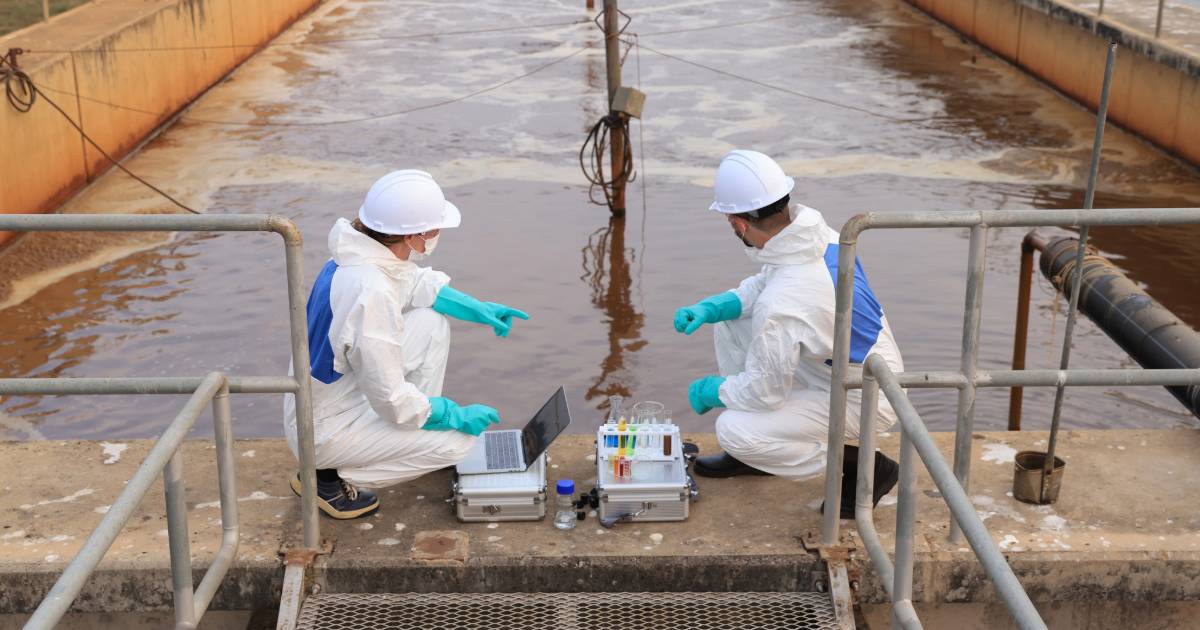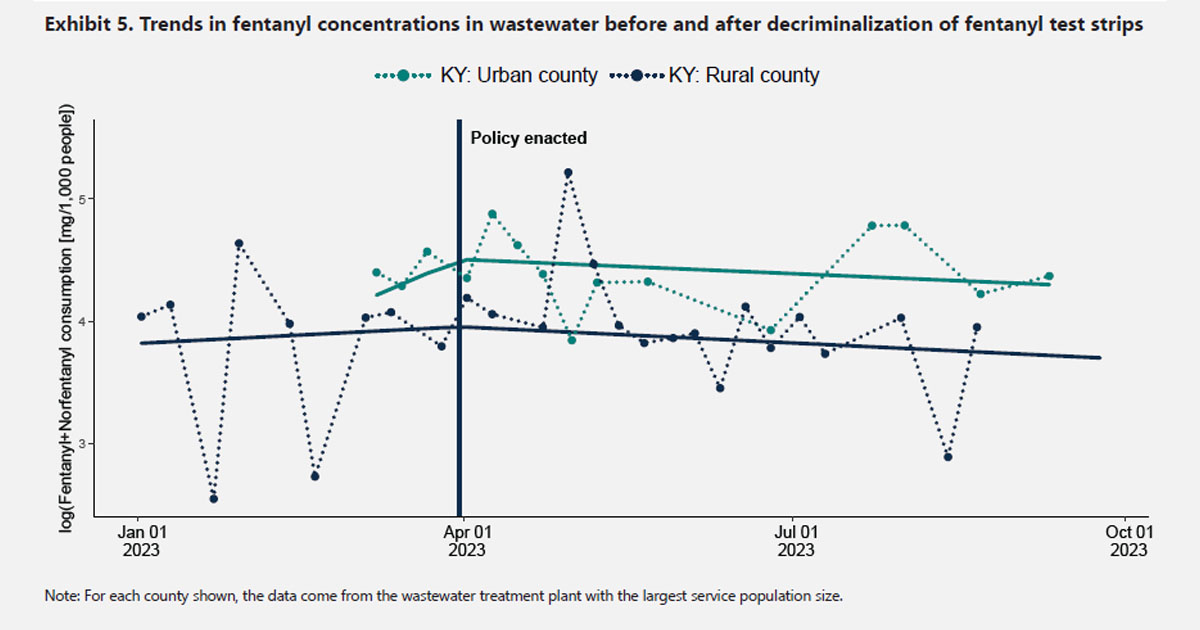Wastewater monitoring is an effective tool in detecting emerging opioid threats, predicting overdoses, and tailoring treatments, according to new research from Biobot Analytics, Mathematica, and the Washington/Baltimore High Intensity Drug Trafficking Area (W/B HIDTA) program. The study sheds light on current and potential applications of wastewater data in the fight against drug overdoses.
New Uses of Wastewater Data on High-Risk Substances: Emerging Drug Detection, Overdose Prediction, and Drug Policy Evaluation analyzed almost 40 weeks of longitudinal wastewater data and data on suspected overdoses from W/B HIDTA’s Overdose Detection Mapping Application Program (ODMAP) from five rural, suburban, and urban counties in California, Kentucky, New Jersey, and West Virginia. The results of the study show the valuable insights wastewater data can provide to states and communities struggling with the drug epidemic. Key findings from the report include the following:
- Wastewater serves as an effective early warning for new threats. Xylazine, an emergent drug threat, was detected in wastewater at least one month before reported overdoses, providing crucial time to launch public health interventions and tailor harm reduction strategies to new types and locations of emerging threats.
- Wastewater intelligence can predict overdoses. Using advanced analytics, the study sheds light on how a novel wastewater-based alert algorithm could be leveraged to reliably predict drug overdoses, flagging 71 to 100% of suspected overdoses and offering vital lead time (8 to 11 days) for preventative action.
- Wastewater fills data gaps, particularly in rural communities. Wastewater data helped fill gaps in drug overdose data, particularly in rural communities, where data and resources can be sparse; it can also shed light on patterns of polysubstance usage.
- Policy changes could be evaluated with wastewater intelligence. Wastewater data registered a decrease in fentanyl use in two Kentucky counties following the decriminalization of fentanyl test strips, providing early evidence of the promise of wastewater data for evaluating the effectiveness of programs targeting substance use and related harms.
“This research shows that wastewater monitoring programs for high-risk substances are critical for addressing the ongoing drug epidemic to both reduce overdose deaths and tailor treatment and programs accordingly,” said Biobot’s CEO and Cofounder Dr. Mariana Matus. “These findings back up what we have known for a long time—that wastewater data can deliver powerful insights and impact for population health.”
Biobot, well known for its best-in-class data and testing services for COVID-19, announced last year the availability of its High Risk Substances platform and contract with the National Institute on Drug Abuse to monitor 70 sites across the country for drug use, misuse, and overdose reversal agents. This study provides further evidence of the value wastewater offers communities beyond monitoring respiratory viruses.
The analyses were conducted by Mathematica whose behavioral health work aims to improve the prevention and treatment of substance use and mental health disorders, in partnership with health agencies and communities. It provides advanced analytics, program evaluations, technical assistance, and customized data collection, visualization, and clinical quality measures. For this study, Mathematica used data provided by Biobot and W/B HIDTA to develop Drug-SURGE, an early-alert algorithm that distinguishes signal from noise in wastewater data to flag, in real time, unprecedented rises in wastewater concentrations of fentanyl, methamphetamine, cocaine, and xylazine.
“This study shows the value of data science to uncover hidden patterns in wastewater data,” said Aparna Keshaviah, director of wastewater research at Mathematica, who designed and led the study. “By analyzing wastewater data on high-risk substances alongside data on suspected drug overdoses, and bringing in information on the timing of states’ drug policy changes, we were able to generate practical insights to help officials predict drug overdoses and use wastewater data to evaluate the effectiveness of drug policies and programs.”
Many municipalities are already testing wastewater for high-risk substances to inform their responses to the opioid epidemic and shape effective drug policies. By combining wastewater data with other data sources and advanced analytics, communities can gain real-time insights, prepare for emerging threats, and ultimately save lives. To take action on implementing a program to combat the drug epidemic in your state or county, click here to learn more about Biobot’s High Risk Substances platform.
Contact
- Christal Stone Valenzano
cstone@mathematica-mpr.com
202-250-3520
About Biobot Analytics
Biobot Analytics is a global leader in wastewater epidemiology, founded with the goal of transforming wastewater infrastructure into real-time public health observatories. Having worked at hundreds of locations across all US states and territories and several countries, Biobot produces actionable information from wastewater to improve the health of communities around the world. Separately from their infectious illnesses work, Biobot also analyzes wastewater for the presence of High Risk Substances, such as opioids, to help communities better respond to substance use and implement harm reduction programming. More information on our mission and technology is available at our website, www.biobot.io.
About W/B HIDTA and ODMAP
The W/B HIDTA is one of 33 federally funded programs aimed at reducing drug trafficking and drug-related crime through coordinated efforts between federal, state, local, and tribal law enforcement agencies. HIDTA supports innovative strategies and partnerships to combat substance abuse and promote public safety nationwide, including ODMAP.


